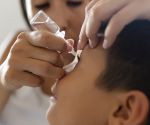Pale or yellow skin could be a problem sign. Jaundice in newborns is often caused by hyperbilirubinemia, which is not usually serious but should be cause for a medical examination. Jaundice may also be caused by congenital hypothyroidism, which must be treated promptly to prevent serious complications, such as brain damage, developmental delays, or stunted growth. Paleness may be caused by iron deficiency, apnea of prematurity, croup, or other conditions. If you are concerned, or notice other troubling symptoms, do not hesitate to call your doctor.
Continue Learning about Children's Health
Important: This content reflects information from various individuals and organizations and may offer alternative or opposing points of view. It should not be used for medical advice, diagnosis or treatment. As always, you should consult with your healthcare provider about your specific health needs.







